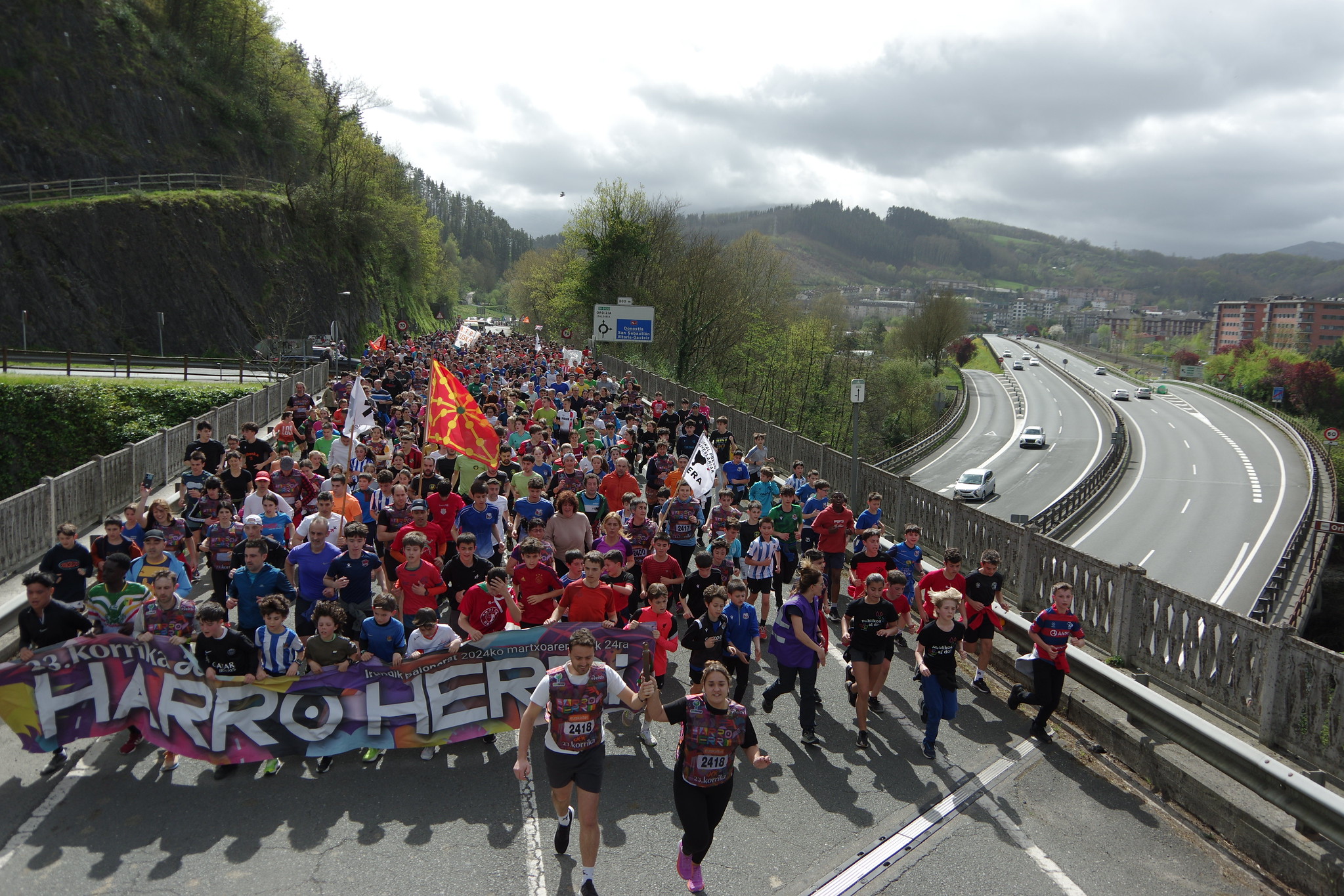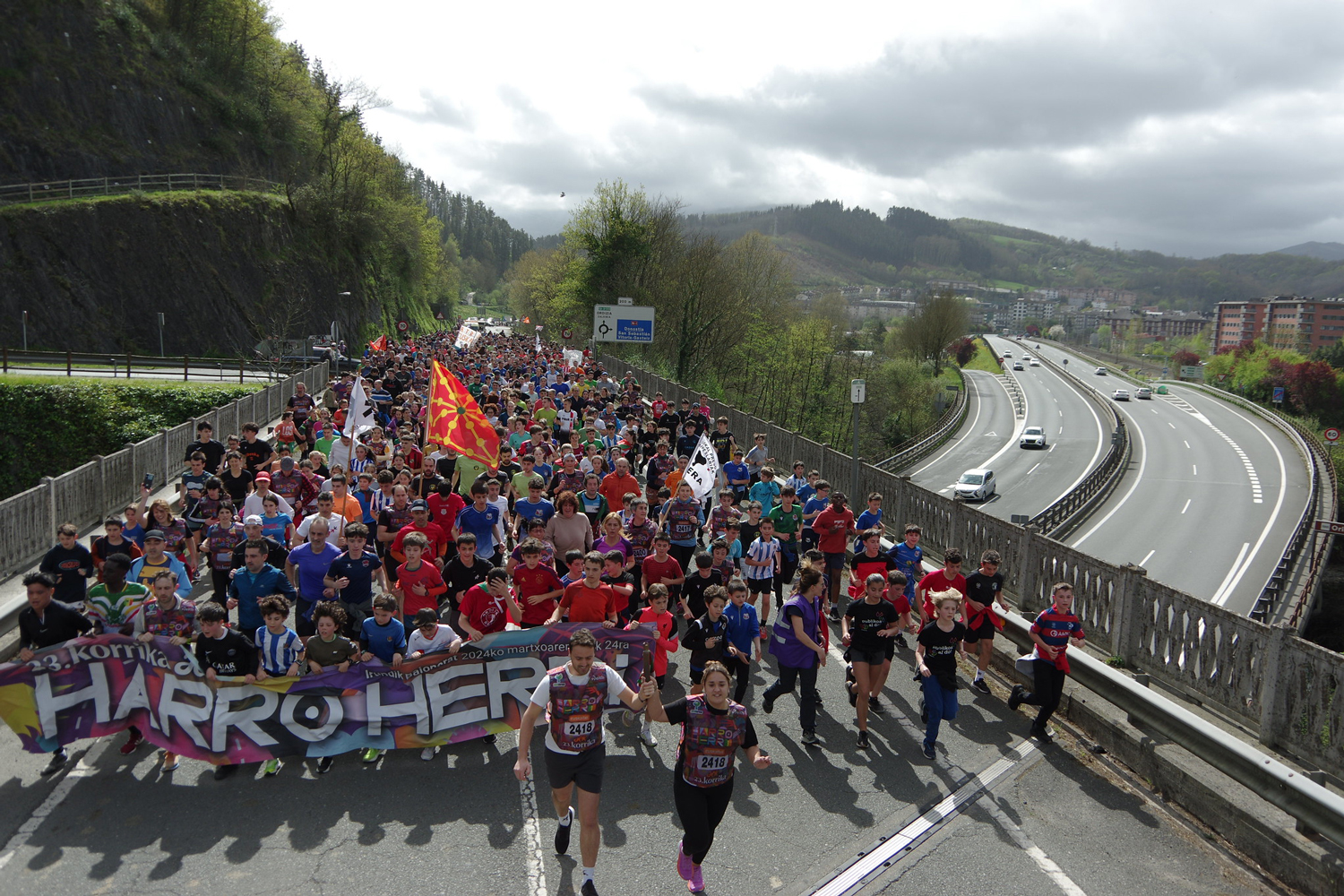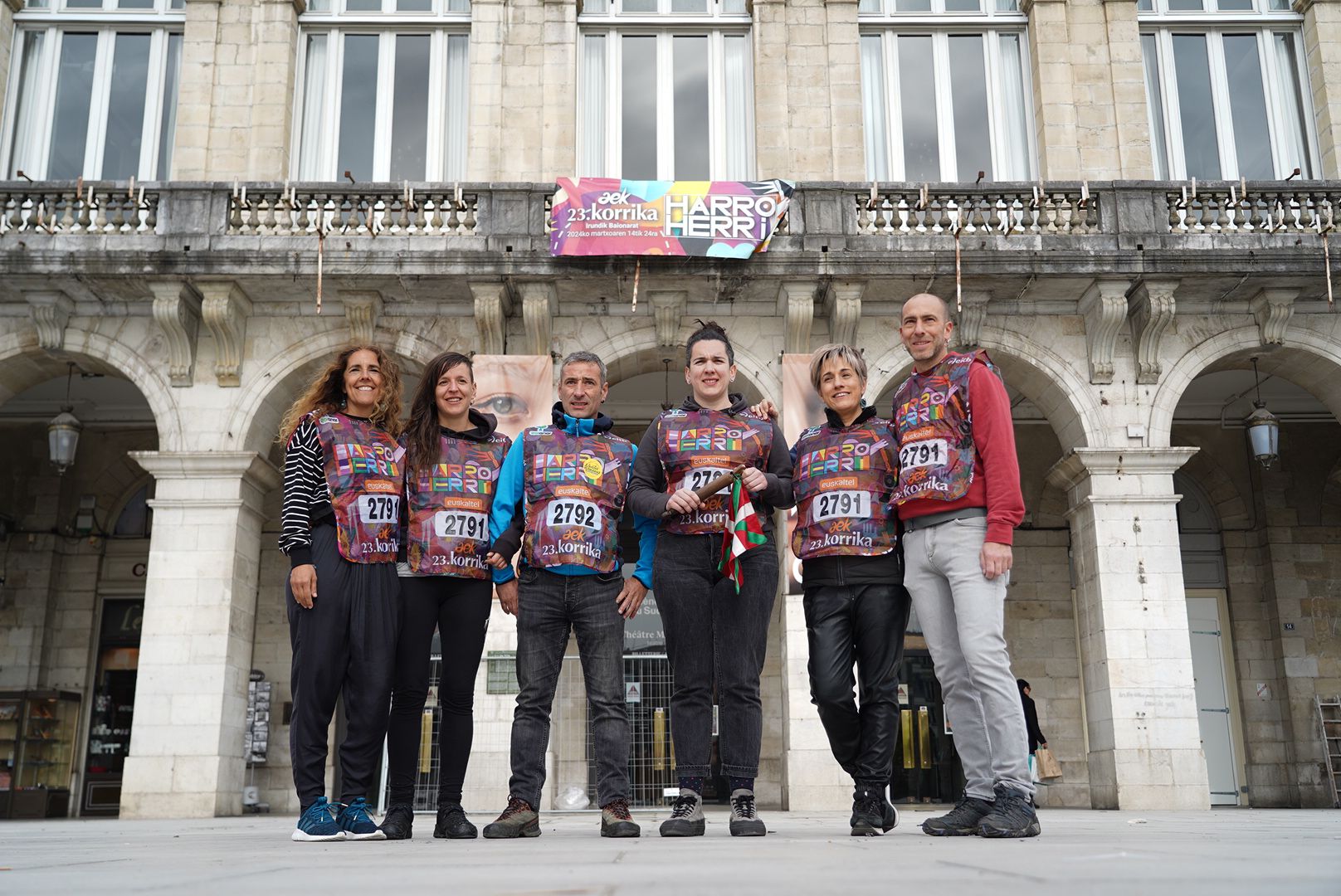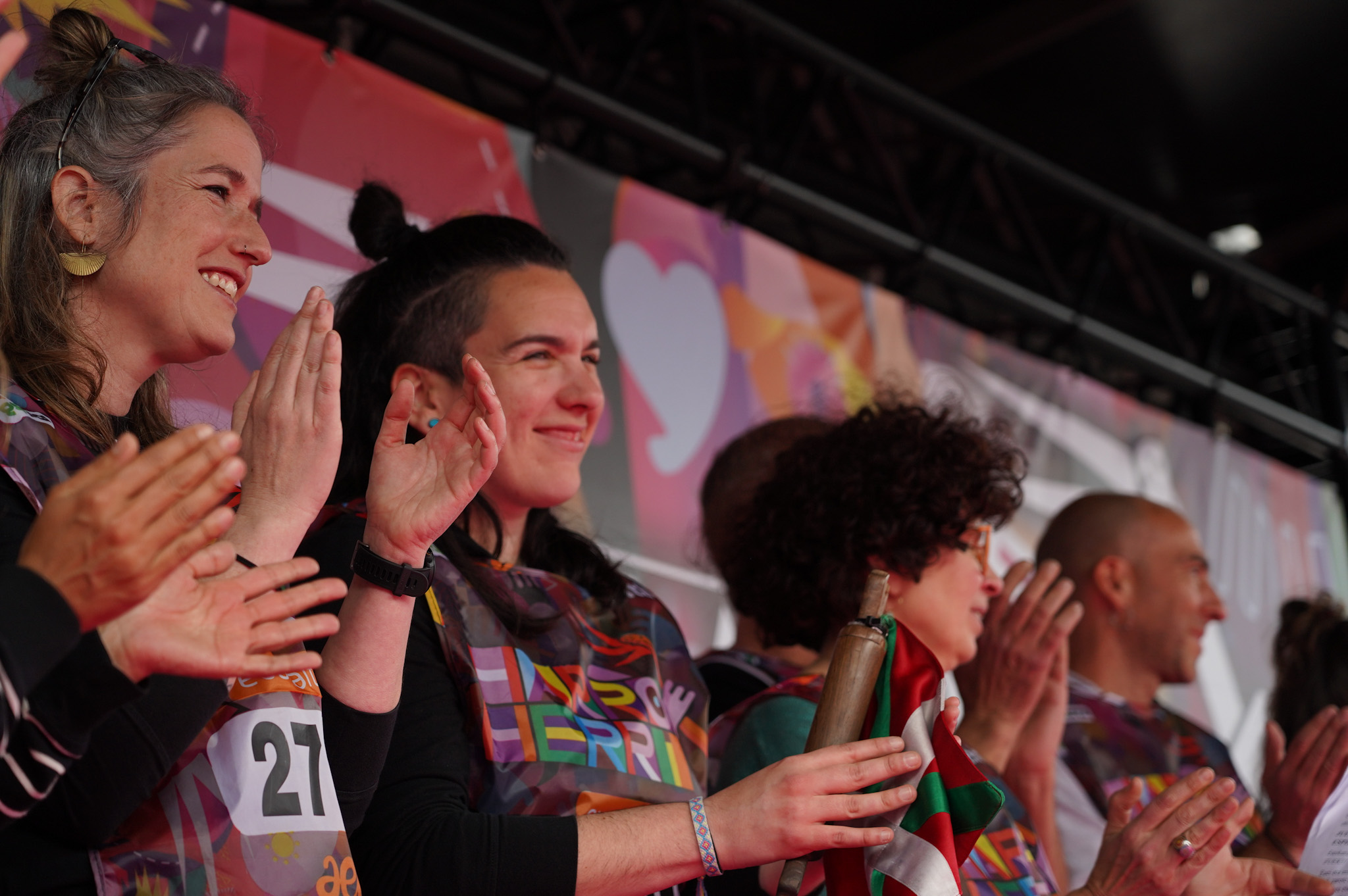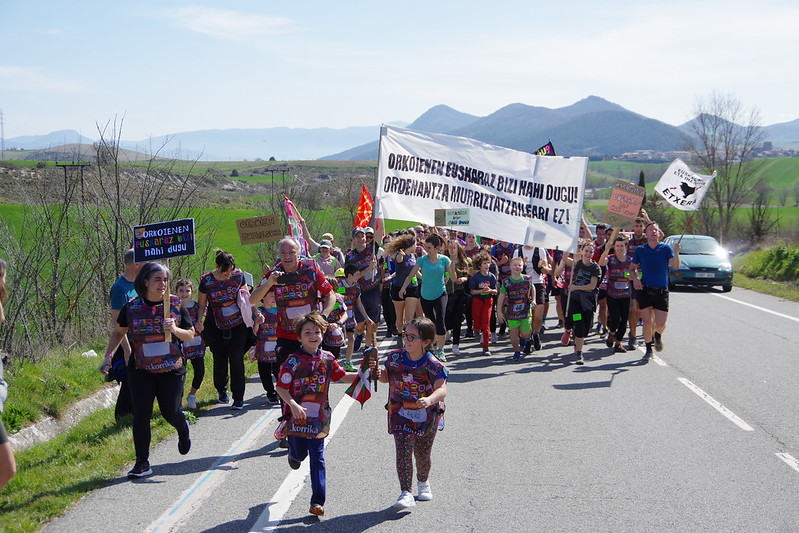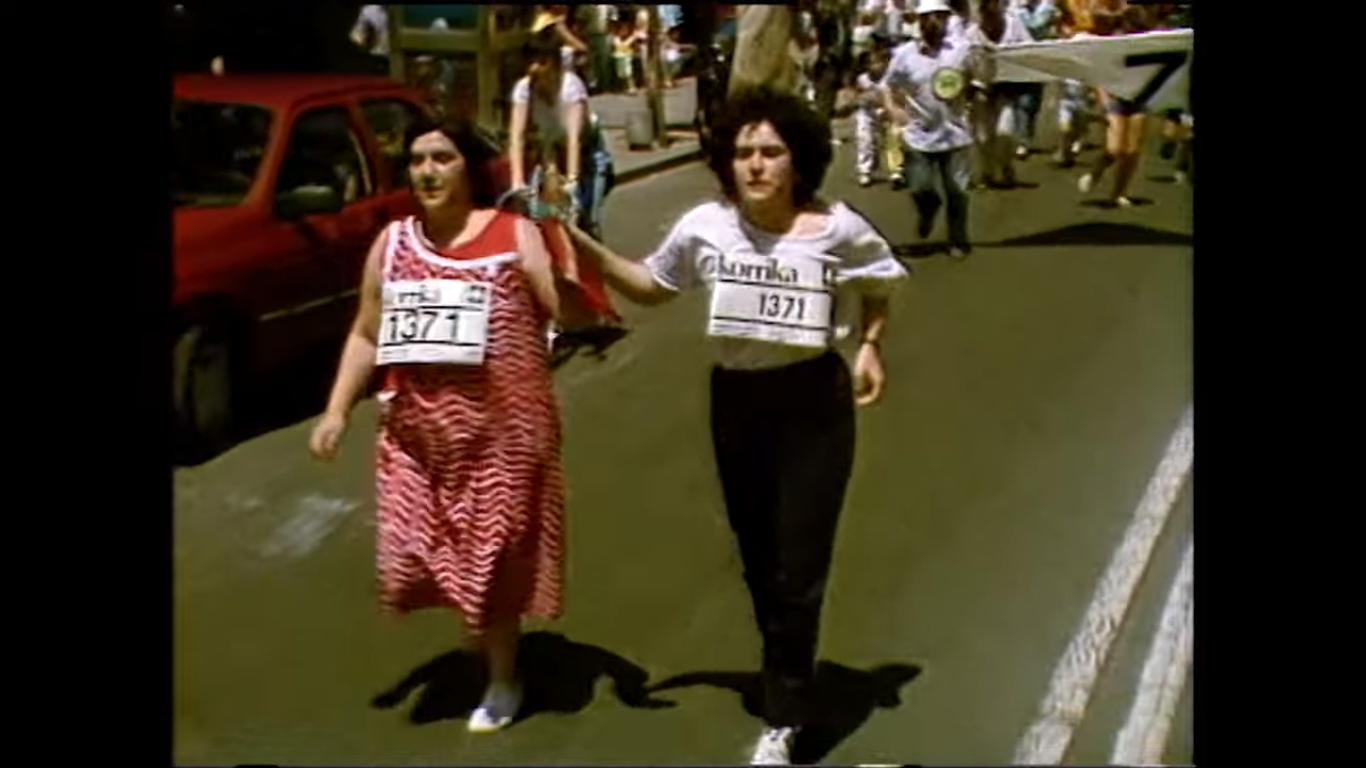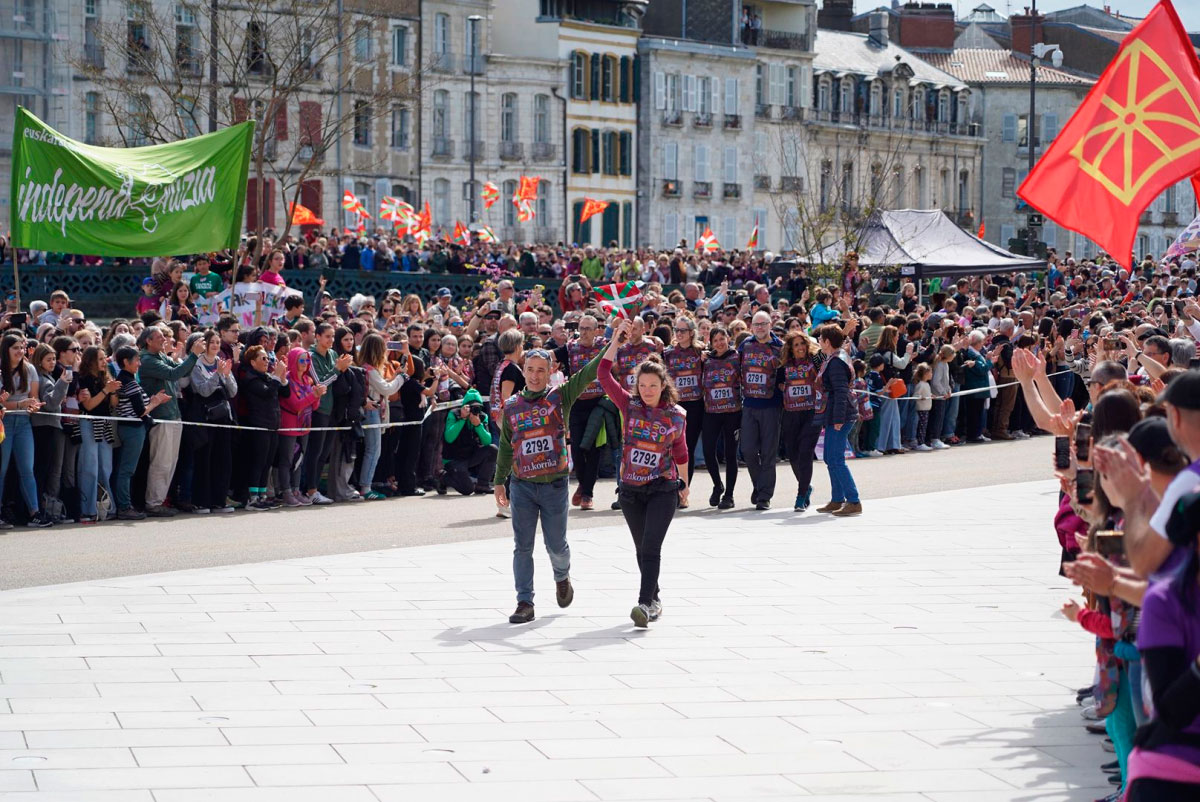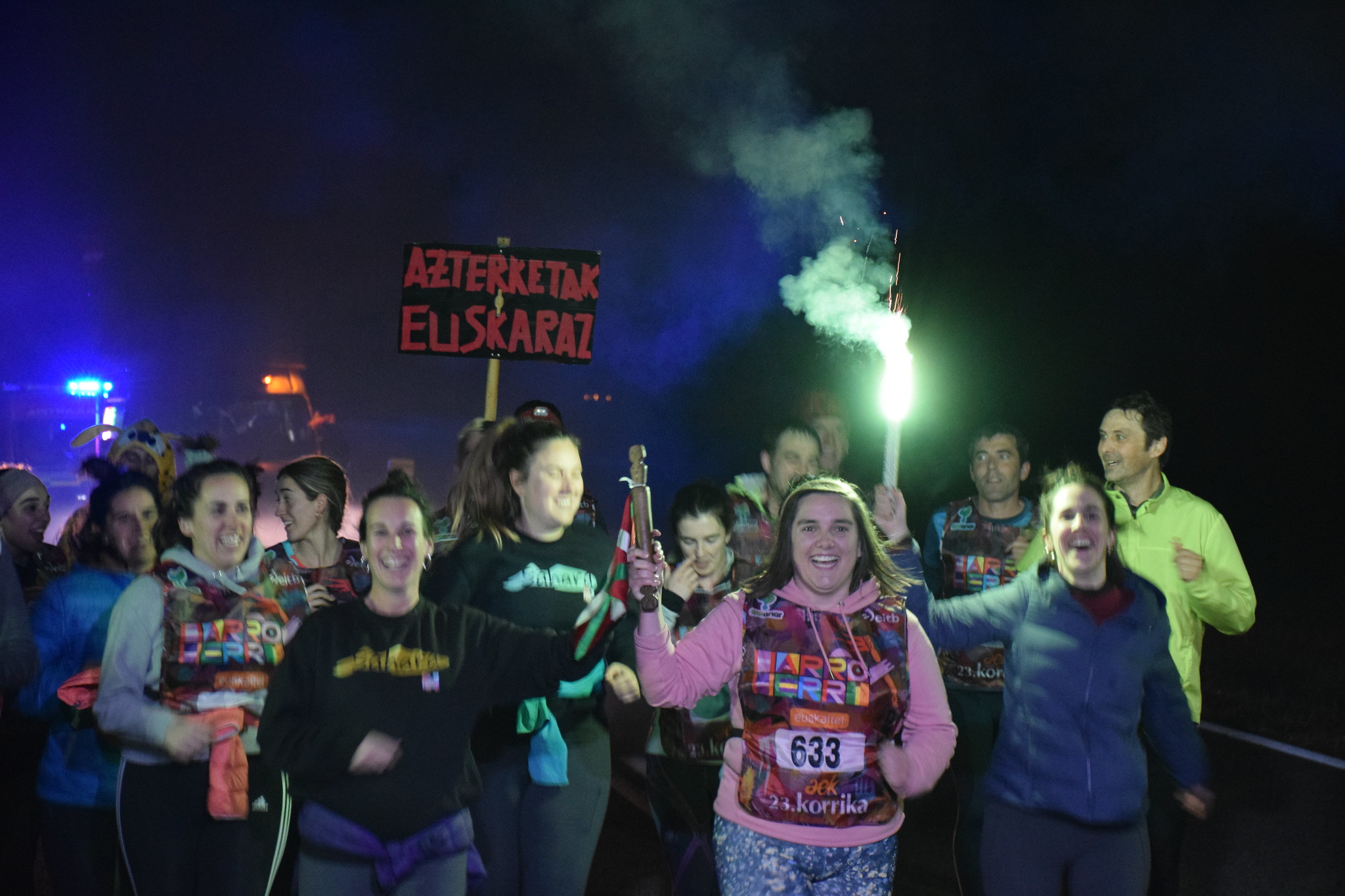Basque lawyers: Disobedience so that Euskera is not a foreign language in the courts
- In the late 1990s, Basque lawyers fought fiercely in the courts. They gave the Basque language the same value as other languages and tried to euskaldunify the Justice, preparing material and acting in the judgments in Basque. However, they paid dearly and many lawyers were fined up to 300,000 pesetas. Jon Etxabe Jauregi was one of them, and remember with sadness how, for the time being, the process of normalization of the Basque country in the CAV has been lost.

The Basque Country, for various reasons, makes it difficult in many places, and the courts are one of those areas. In the 1990s, especially between 1995 and 1997, several Basque lawyers tried to deal with this fact, and they wanted to make a space for the Basque in the courts: they claimed the value of the Basque Country and the celebration of the trials in the local language. Not only that, but beyond the demands, they went back to action. Jon Etxabe Jauregi is, among others, a lawyer and president of UZEI, and at that time he also competed both areas and fought with others at the Bar Association. In those years the College already had the Basque Commission, to which Etxabe joined: “I’ve always been sensitive to Euskera,” he said.

It was a time of great tension, because they wanted to introduce Euskera at all costs into the courts, and many did not like it. Etxabe recalls that violent trials were created: “We wanted to press the gear and force judgments to be made in Euskera.” It was about stimulating the need for prosecutors and judges to speak in Basque.
The Basque lawyers defended in Euskera and, as they did not understand, had to delay the trials. They offered them translations, but the lawyers refused to do them in bilingual. “Spanish is the only language of justice and the others are foreign languages; Euskera is treated as a foreign language and needs translation.” They demanded that Euskera be the base, not the Castilian. “Traduttore, traditore”, added Etxabe, to warn of the nuances that are lost in the translations.
It will not be judged if it is not in Basque
Etxabe recalled the trial held on 27 November 1997 at the National Hearing. Ainhoa Erkizia Eskolano and he defended at the Provincial Court of Gipuzkoa, in a court full of media and citizens. The other two lawyers who used to bring the case rejected the hearings, because they did not want to do them in Spanish, and they did not want to put a prosecutor or a Basque judge. So, there was a tremendous curiosity to know what was going to happen to Etxabe and Erkizia.
(1).jpg)
Etxabe prepared a “rather allegorical” defensive report in Basque almost in its entirety: On the occasion of today's judgment, all the ghosts of the Basques have been spinning around me, with the rocket in my hand on the dark night. Don José Miel has also come to me and said: “Tell them that we are from here, that we come from the dust of the stars. Before we were king, we lived under the laws of the Gentiles.” Although they were Basque and from here, the Basque was detrimental to the client; the lawyers wanted to close the cases as soon as possible, but they were delayed for doing so in Euskera, for the scourge of all.
The Basque circuit and natural judges
Mari has offered me a golden comb near his river, promising to comb our land this time. It seems that lately there are pretty strange and proud Gentiles around us. Faced with the strangeness, they already had the solution: the lawyers proposed to create an “Euskaldun circuit”, that is, to obtain Euskaldunes prosecutors, judges and secretaries to ensure that the trials were held in Euskera, or that some learner in Euskera. Etxabe regrets that they never did. Indeed, they had been subject to many difficulties and few were able to do so before the law. 30 years later, they still have the same demands.
By law, the judge must be natural, that is, random. The judges accused the Basque lawyers that with the Basque circuit the judges would always be the same, and that this is illegal. They said they would be discriminated against for not knowing Euskera. “It was an excuse, but it was a loss of our speech.”

No hand to pass the witness
In that 1997 case, the judges demanded that Erkizia and Etxabere make the speech in Spanish; they got up and left. As a result, fines of up to 300,000 pesetas (some EUR 2,000) were imposed on each of them for crimes of disobedience. Despite the fact that they managed to lower the figure by means of appeal, they paid dearly for speaking in Basque. Etxabe didn't pay, but he was seized of that money. As they were fined by lawyers, a current account was opened for citizens to pay, but it wasn't enough.
Many of the young lawyers had just started and didn't have much money, and they realized that the struggle could be detrimental to career. “They saw that they had to live and thought that they could do it in Spanish as well. That is sad, sad, sad.” At the beginning of the 21st century, the struggle of Basque lawyers was weakened. Inaxio also appeared to me and said: “Don’t get stuck and go ahead with the company, with sparks and with open flags.”
Etxabe expects to retire in about three years, but he does not notice that future generations are willing to take over. Who are the witnesses going to pass to the combatants of the 1990s? “There are young people, but they are not willing to get wet, to push and to take risks.” The young people have something to do, because the generation of Etxabe began to create the Basque bases; some volunteers started to make material in Basque for law from scratch, and today there are many textbooks and dictionaries of specific terminology.
Therefore, the Basque Country is prepared for the courts, but not developed: “To develop a language you must use it. How? Making judgments, preparing lawsuits... and creating a language and rhetoric.” And that doesn't happen overnight. Moreover, Etxabe is aware that things do not change with the will alone: “We want a change of law.”
Not more than a year living in Vitoria when I first saw Korrika. It was daylight, I was carrying my daughter in a backpack, and a bunch of speakers around me, and among those friends, Rosa, who is still beside me. About her daughter, what to say, is almost 14 years old, and in... [+]
For eleven days, from 14 to 24 March, the corners of Euskal Herria will run 23 March. Running. Photographs sent by AEK are being collected in this gallery.








.jpg)


